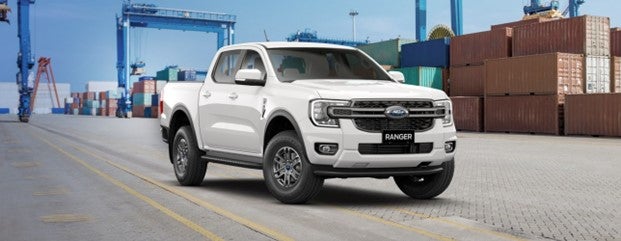
The Thai Automotive Industry Association (TAIA) has warned new emissions regulations in Australia would likely affect exports of vehicles from Thailand, with tighter measures set to be introduced from next year.
Under its New Vehicle Efficiency Standard (NVES) the Australian government plans to introduce new CO2 emission limits on new light vehicles sold in the country from the beginning of 2025. The CO2 emission limit will be reduced to 199g/km from next year, with future reductions expected to lower the limit to 81g/km by 2029 which will likely only be met by hybrid and zero-emission vehicles such as battery electric vehicles (BEVs).

Discover B2B Marketing That Performs
Combine business intelligence and editorial excellence to reach engaged professionals across 36 leading media platforms.
Vehicles which do not meet the new standards were expected to be penalised with higher taxes and fines while low- and zero-emission vehicles were likely to become cheaper.
Vehicle manufacturers were expected to initially be able to offset higher polluting models with low- and zero-emission vehicles but this would become increasingly difficult as emission standards were tightened further.
Light vehicles such as SUVs and pickup trucks, of which Thailand is a major exporter, were expected to struggle to meet the new standards. Last year Thailand exported 302,000 passenger vehicles and pickup trucks to Australia, New Zealand and Oceania, or around 27% of its total vehicle exports.
TAIA president Suwat Supakandechakul said in a statement: “We expect this measure to be in place in 2025 with the new rule pushing manufacturers to produce more efficient vehicles including BEVs.”
At last month’s Asean-Australian summit Thai prime minister Srettha Thavisin urged Australian prime minister Anthony Albanese to slow down his country’s emissions tightening plan which he said could negatively affect Thailand’s automotive export industry.
Albanese has since confirmed the new emission standards would be implemented as planned in 2025, pointing out Australia was the only Organisation for Economic Co-operation and Development (OECD) country not to have such standards in place.
Earlier this year Sean Hanley, Toyota Australia head of sales and marketing, told local media: “[We support] the introduction of a mandatory fuel efficiency standard which is ambitious, doesn’t leave Australians behind, is calibrated to the Australian market and allows carmakers to determine the appropriate mix of technologies to achieve it.”
Brands such as Isuzu and Ford which rely heavily on SUVs and ‘utes’ (for utility of pickup truck) would inevitably struggle more than others with the new regulations.
The Thai built Ford Ranger pickup regularly tops the overall sales charts in Australia (and neighbouring New Zealand) in competition with the (also Thai built) Mitsubishi Triton and Toyota Hilux.






